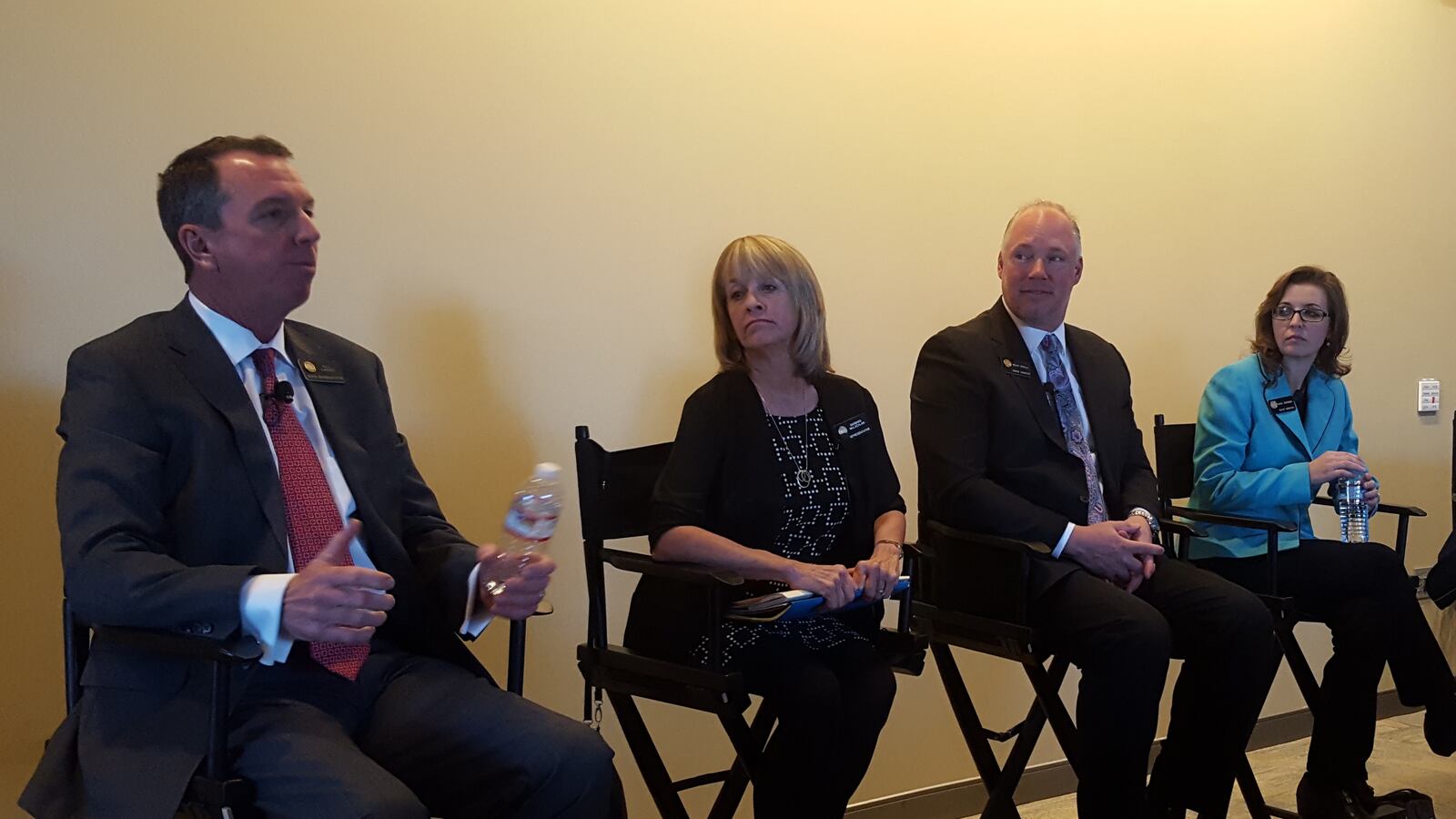Less than a week before legislators head back to the state Capitol, four lawmakers who work on education issues shared their thoughts at a forum Thursday morning as they prepare bills to introduce this session.
The event, hosted by Chalkbeat, featured four panelists: state Sen. Rachel Zenzinger, an Arvada Democrat; state Sen. Kevin Priola, a Henderson Republican; state Rep. Barbara McLachlan, a Durango Democrat; and state Rep. Paul Lundeen, a Monument Republican.
Here are five quick takeaways from the discussion:
On the teacher shortage issue: No minimum wage for teachers
Legislators lauded the state-prepared report on how the teacher shortage is playing out in Colorado, but said there are still many ways for them to take those suggestions to change laws.
The four panelists discussed how pay, principal leadership, and accountability rules affect teachers.
“Is it absolutely imperative that we evaluate excellent teachers every single year, or not?” Zenzinger asked.
All four panelists said there is no appetite for setting a minimum wage for teachers. There may still be other ways to talk about increasing pay, however.
Lundeen said he would like to see increased flexibility at the school level and a reduction in unfunded mandates that steer money away from teacher pay.
In discussing pension reforms, he also noted that reforming the state’s pension system is important to do soon because while current teachers need a raise, money from the districts is increasingly going to teachers who already retired.
On school funding: Agreement that a lot needs to change, but it’s early in the process
Lawmakers discussed various inequities in the system and McLachlan highlighted disparities for rural communities.
Last year, lawmakers created an interim legislative committee to study how the state funds its schools and recommend changes. Two panelists, Zenzinger and Lundeen, are on the committee.
Zenzinger said that the group is looking at many aspects of school funding, but that she wants to go back to the basics.
“To me it’s a little frustrating we just kind of made an assumption that the base amount is adequate,” she said. “How did we come to that base amount in the first place?”
Lundeen said the discussions first have to be around values.
“We are just now approaching the difficult conversations we need to have around our values,” he said. “What do we care about? Is stability more important than innovation or not?”
On the state’s READ Act: It’s still causing problems
Zenzinger said some teachers who have students flagged for reading problems don’t have help from their schools or districts to better teach students to read.
She said — and McLachlan agreed — that the system needs to be evaluated to see what’s working and what’s not.
“I agree there needs to be tweaks,” Priola said. “We can’t throw the baby out with the bathwater.”
On funding kindergarten: One possible solution would be to decrease funding for some high school students
Priola said a bill he’s working on would increase the amount of money districts get for kindergarten students so they may expand full-day kindergarten classrooms. To make the bill more likely to survive, he said, the bill would not require new money because it would also decrease the amount of funding districts get for high school students if they are no longer attending school full-time.
Schools would still qualify for full funding for students not attending full-time if it’s because they are enrolled in college classes through concurrent enrollment programs, he said.
“That’s our hope to keep the bill revenue neutral, but to provide those structural changes to encourage better outcomes, and discourage outcomes that are, in my opinion and others’, not the best use of our resources,” Priola said.
On accountability: “You can’t legislate everything”
An Aurora high school teacher asked lawmakers how students and parents might be held accountable for test scores. She said, as a teacher, she is held accountable for the test scores of students who sleep during tests because they, or their parents, don’t take the tests seriously.
Lawmakers said that’s an issue of culture that needs to change, but can’t be legislated.
“At the end of the day it still comes down to students and parents caring,” Priola said.
Said Zenzinger: “You can’t legislate everything.”
You can watch a Facebook Live recording of the discussion here:

